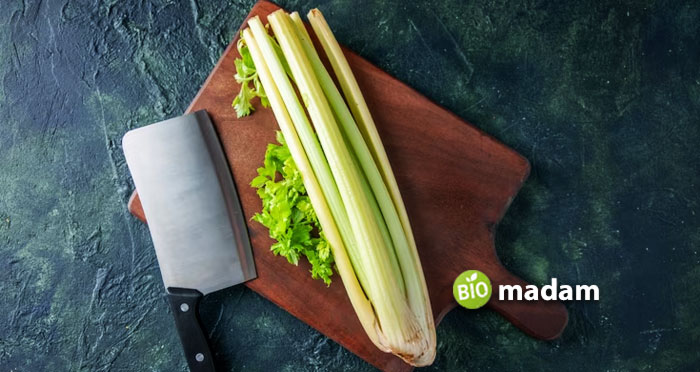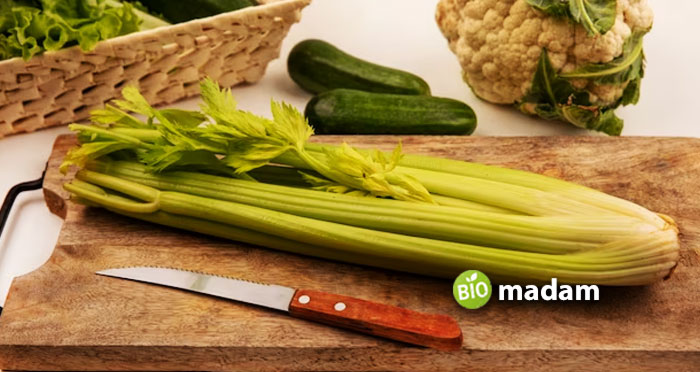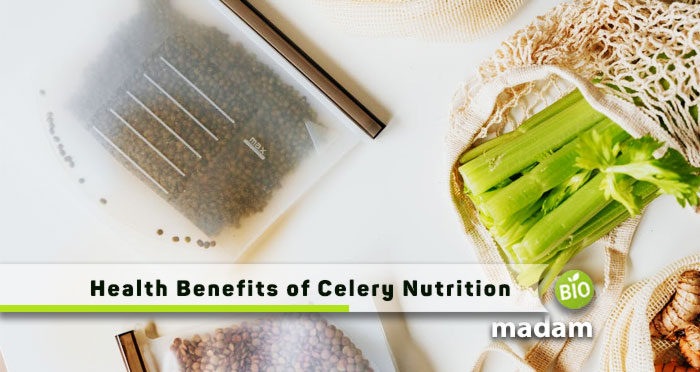Celery is a green leafy vegetable resembling coriander. However, they are not the same.
Celery is a herbaceous plant belonging to the Apiaceae (parsley) family. It is native to the Middle East and Mediterranean regions and is widely used in local cuisine. It has also been used as medicine by the Chinese in the past as celery has lots of benefits when being eaten at night.
The vegetable has upright, large leaf stalks with small and simple leaves on them. Celery also has a stringiness absent in other varieties of the same family. It is identified by flat, yellowish-green leaves with notches and teeth on the edges. The stems are smooth-ribbed, crisp, and fleshy and may be observed under a microscope for in-depth study.
Celery has an earthy flavor without much distinction to it. It is used in salads, traditional foods, and soups. The seeds of the celery plant have a similar taste to the leaves and stalks and are added to pickles and soups.
Plant Species Overview
The scientific name of celery is Apium graveolens, which belongs to the Apium genus of the Apiaceae family.
Celery Nutrition Splittance Per Stalk
Following are the quantities of macro and micronutrients of celery per stalk:
| Macronutrients | Value |
|---|---|
| Carbs | 1.2 g |
| Protein | 0.3 g |
| Fat | 0.1 g |
| Fiber | 0.6 g |
| Micronutrients | Value |
|---|---|
| Sodium | 32 mg |
| Potassium | 104 mg |
| Phosphorus | 9.6 mg |
Celery Health Benefits

- Celery is an excellent source of vitamins, minerals, and antioxidants that protect cells, tissues, organs, and blood vessels from oxidative damage. It contains over 12 kinds of antioxidants in a single stalk that protect and support various functions in the body. Phytonutrients in celery also reduce inflammation in different organs.
- Celery has been widely used to improve eyesight. Vitamin A, E, and C help protect vision and prevent age-dependent macular degeneration. It also contains Zeaxanthin and Lutein, which provide added protection to the rods and cons.
- Folates and folic acid are essential for expecting women to reduce spinal cord-related birth defects in the fetus. The high amount of folate in green vegetables like celery makes them a good source of macro and micronutrient for pregnant women and women of childbearing age.
- Besides antioxidants and folates, celery is rich in potassium and fiber contributing to better cardiac health. They help lower blood pressure, prevent inflammation, and reduce cholesterol levels for heart health. The polyphenols in celery also contribute to improved heart function by reducing inflammation.
- Celery contains flavonoids like luteolin, apigenin, and phenolics that protect against oxidative damage in the pancreas. Besides flavonoids, apigenin also slows down the progression of diabetes by protecting you from other conditions like cataracts, diabetic neuropathy, and retinopathy (blindness). The presence of quercetin increases glucose uptake in the liver, stimulating insulin secretion and improving health.
- Weight loss is one of the most prominent benefits of celery juice due to its high water content. Nutritionists suggest eating celery on hot summer days to prevent dehydration considering the 95% water content in the green vegetable.
- Celery also contains a high amount of insoluble and soluble fiber to keep your gut healthy. Furthermore, the polysaccharides in celery decrease the risks of stomach ulcers and regulate secretions.
- A few pieces of research have shown a connection between celery and cancer because of the presence of antioxidants. Apigenin and luteolin in celery have been seen to act protective against some causes of cancer and induce cell death in pancreatic cancer cells.
Preservation
Celery leaves can last three days outside at room temperature uncovered and up to a week if covered in aluminum foil. However, you can increase its shelf life by wrapping it in plastic wrap or aluminum foil and placing it in the crisper drawer in the refrigerator. It may last between 1 to 4 weeks if you store it without washing and wrap it properly.
Precautions

Apart from the numerous health benefits of celery, there are also a few precautions. Moreover, eating too much celery can produce side effects that you must keep in mind. Look out for allergies if you are allergic to similar plants like dandelion, birch, and wild carrot. People with existing bleeding problems are recommended to avoid consuming celery in large quantities. Celery is also associated with constipation, kidney issues and low blood pressure if taken in medicinal amounts without a doctor’s consultation.
Keynote
While celery is not one of the most delicious vegetables, it has many health benefits. It contains a high amount of antioxidants that contribute to better cardiac health, improved vision, and help with diabetes. Researches also show the positive effects of Apigenin and Luteolin on pancreatic and breast cancer. Add this green vegetable to your diet to enjoy the various health benefits of celery.

Meet me; I am Paulina Zaniewska, who’s more hooked on providing the best health blog. I’ve always been so determined to compete as a nutritionist, and here I am, done with a Master’s in food technology. My brilliant performance throughout encouraged me to help people.

